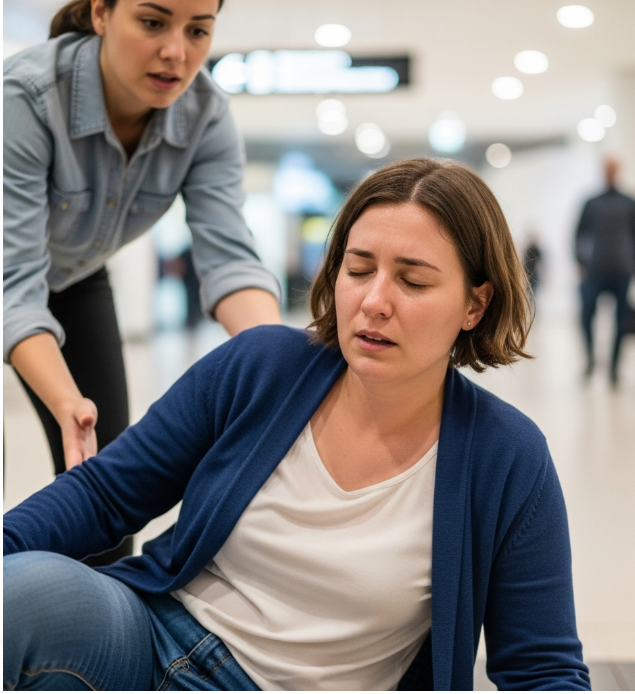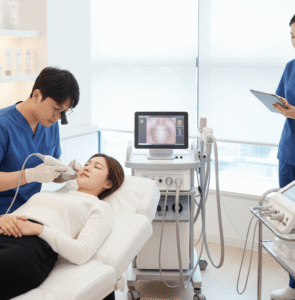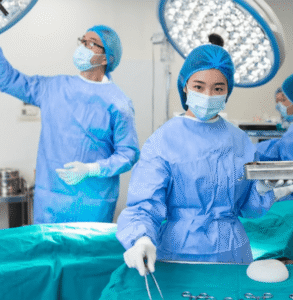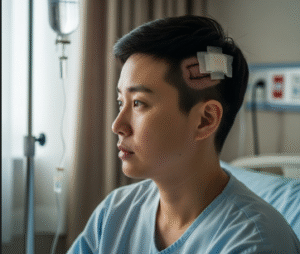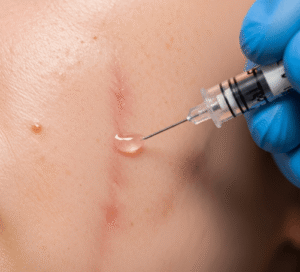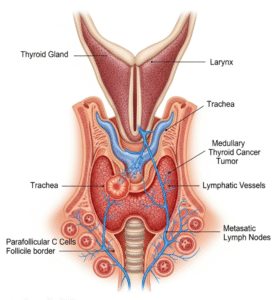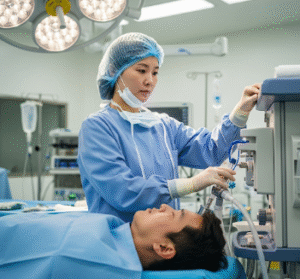Overview
Syncope vasovagal, also known as vasovagal syncope or fainting, is the most common type of fainting caused by a sudden drop in heart rate and blood pressure leading to reduced blood flow to the brain. This transient loss of consciousness often occurs in response to triggers such as stress, pain, or prolonged standing. While generally benign, recurrent episodes may impact daily life and require medical evaluation.
What is Syncope Vasovagal?
Vasovagal syncope is a reflex-mediated fainting episode caused by overactivation of the vagus nerve. This leads to dilation of blood vessels and slowing of the heart rate, resulting in temporary insufficient blood supply to the brain. It is usually triggered by emotional distress, pain, dehydration, or standing upright for long periods. Recovery is rapid and complete once the person lies down.
Symptoms
- Lightheadedness or dizziness before fainting
- Nausea or sweating
- Blurred or tunnel vision
- Pale skin
- Weak pulse or slow heart rate
- Brief loss of consciousness
- Fatigue or confusion after regaining consciousness
Causes
- Emotional stress or anxiety
- Pain or trauma
- Prolonged standing or heat exposure
- Dehydration or low blood sugar
- Sudden changes in posture
- Sight of blood or needles
Risk Factors
- History of fainting episodes
- Young age (more common in adolescents and young adults)
- Dehydration
- Anxiety disorders
- Prolonged standing or crowded environments
- Certain medications that lower blood pressure
Complications
- Injuries from falls during fainting
- Recurrent episodes affecting quality of life
- Anxiety or fear of fainting leading to activity avoidance
- Rarely, underlying heart conditions may coexist
Prevention
- Stay hydrated and avoid overheating
- Avoid prolonged standing and crowded spaces when possible
- Learn to recognize early warning signs and lie down immediately
- Use physical counter-pressure maneuvers (e.g., leg crossing, muscle tensing)
- Manage stress and anxiety through relaxation techniques
- Review medications with a healthcare provider
Treatment Options in Korea
South Korea offers comprehensive care for vasovagal syncope through cardiology and neurology specialties:
- Diagnosis
- Detailed medical history and physical examination
- Tilt table testing to provoke and diagnose syncope
- ECG and heart monitoring to exclude cardiac causes
- Medications
- Usually not required, but in recurrent cases, beta-blockers or fludrocortisone may be prescribed
- Lifestyle and Behavioral Therapy
- Education on trigger avoidance and symptom management
- Physical counter-pressure exercises

